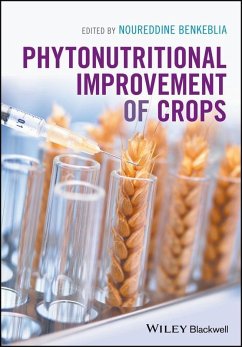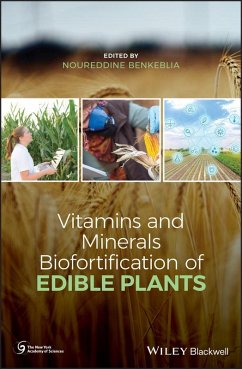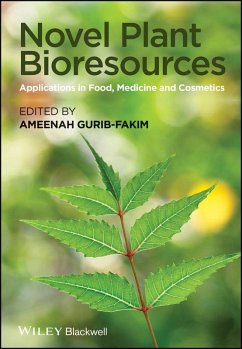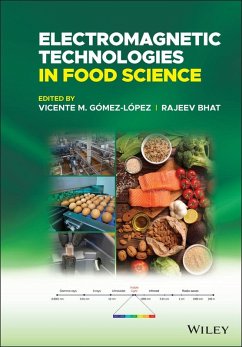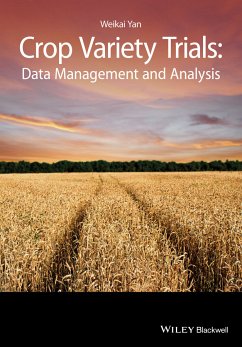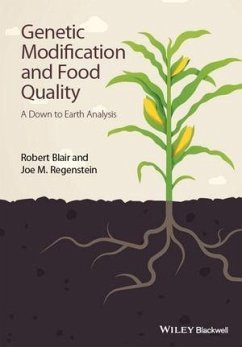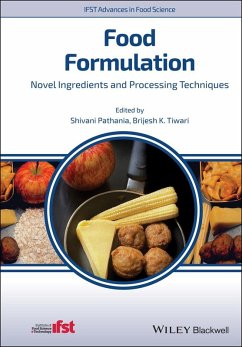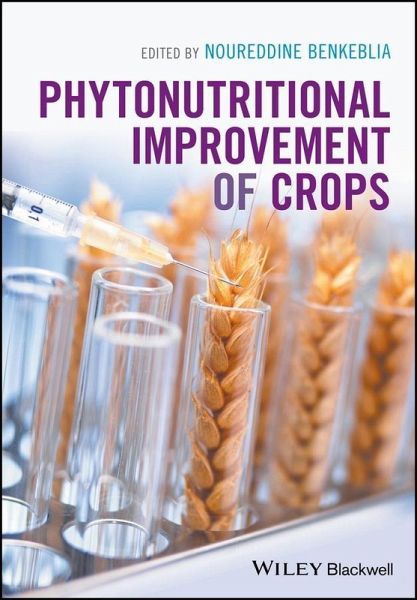
Phytonutritional Improvement of Crops (eBook, ePUB)
Versandkostenfrei!
Sofort per Download lieferbar
170,99 €
inkl. MwSt.
Weitere Ausgaben:

PAYBACK Punkte
0 °P sammeln!
An in-depth treatment of cutting-edge work being done internationally to develop new techniques in crop nutritional quality improvement Phytonutritional Improvement of Crops explores recent advances in biotechnological methods for the nutritional enrichment of food crops. Featuring contributions from an international group of experts in the field, it provides cutting-edge information on techniques of immense importance to academic, professional and commercial operations. World population is now estimated to be 7.5 billion people, with an annual growth rate of nearly 1.5%. Clearly, the need to ...
An in-depth treatment of cutting-edge work being done internationally to develop new techniques in crop nutritional quality improvement Phytonutritional Improvement of Crops explores recent advances in biotechnological methods for the nutritional enrichment of food crops. Featuring contributions from an international group of experts in the field, it provides cutting-edge information on techniques of immense importance to academic, professional and commercial operations. World population is now estimated to be 7.5 billion people, with an annual growth rate of nearly 1.5%. Clearly, the need to enhance not only the quantity of food produced but its quality has never been greater, especially among less developed nations. Genetic manipulation offers the best prospect for achieving that goal. As many fruit crops provide proven health benefits, research efforts need to be focused on improving the nutritional qualities of fruits and vegetables through increased synthesis of lycopene and beta carotene, anthocyanins and some phenolics known to be strong antioxidants. Despite tremendous growth in the area occurring over the past several decades, the work has only just begun. This book represents an effort to address the urgent need to promote those efforts and to mobilise the tools of biotechnical and genetic engineering of the major food crops. Topics covered include: * New applications of RNA-interference and virus induced gene silencing (VIGS) for nutritional genomics in crop plants * Biotechnological techniques for enhancing carotenoid in crops and their implications for both human health and sustainable development * Progress being made in the enrichment and metabolic profiling of diverse carotenoids in a range of fruit crops, including tomatoes, sweet potatoes and tropical fruits * Biotechnologies for boosting the phytonutritional values of key crops, including grapes and sweet potatoes * Recent progress in the development of transgenic rice engineered to massively accumulate flavonoids in-seed Phytonutritional Improvement of Crops is an important text/reference that belongs in all universities and research establishments where agriculture, horticulture, biological sciences, and food science and technology are studied, taught and applied.
Dieser Download kann aus rechtlichen Gründen nur mit Rechnungsadresse in D ausgeliefert werden.




